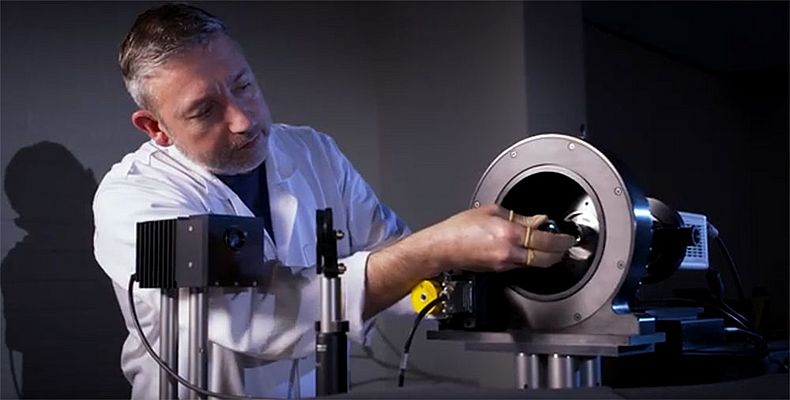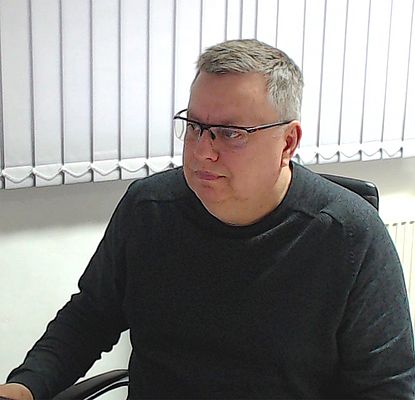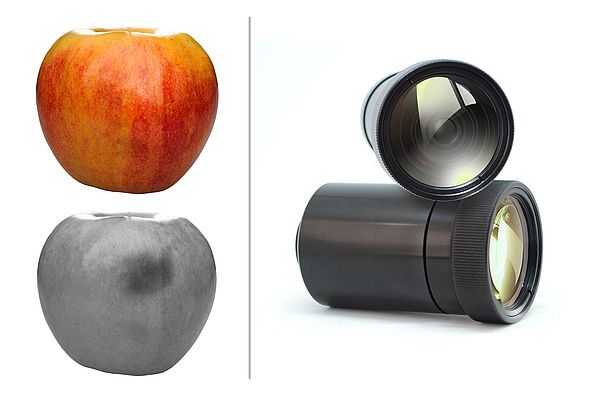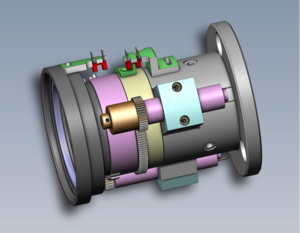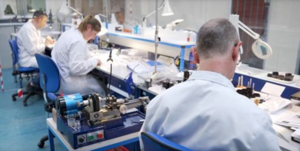PCN Europe: What experience and expertise does Resolve Optics bring to materials inspection and sorting – a common task in many industries?
Pontin: Drawing upon a highly experienced team of optical designers and engineers – Resolve Optics has a proven track record in designing and producing high performance custom lenses for materials inspection and sorting applications. In the last few years, we have received several major orders for instrument optimised versions of our Model 363-000 – a 16mm Short Wavelength Infrared (SWIR) lens for inspection and material sorting applications. Our aim is to provide a fast and flexible optical and mechanical design assessment on all projects. A project engineer is assigned to closely liaise with customers at all points of a development to ensure complete satisfaction with the final product. The experience of our design staff combined with cutting-edge Computer Aided 3D modelling ensures that top performance is designed into all our lenses and optical systems. Advanced optical manufacturing and CNC machining technology is used to produce high quality components. In assembly, our experienced workers build complete assemblies with care and attention to detail. All products are tested before leaving our factory to ensure complete satisfaction. It is this blend of skills, experience and flexibility that have established Resolve Optics as a leading manufacturer of special lenses and optical products for materials inspection and sorting.
PCN Europe: What are the advantages of using Short Wavelength Infrared (SWIR) rather than Visible lenses in a materials inspection or sorting system?
Pontin: The SWIR region covers wavelengths between 0.7 and 1.9 µm. Compared to imaging sensors operating in the MWIR or LWIR regions, those that capture SWIR’s shorter wavelengths deliver images with higher resolution and stronger contrast, which are key criteria for inspection and sorting applications. SWIR imaging can also highlight features and defects that visible imaging systems cannot. Because water absorbs strongly at SWIR wavelengths it means that objects or features with a high moisture content appear black in images captured using a SWIR camera. Consequently, SWIR imaging systems are widely used to determine moisture content and bruising damage in fruit, produce and grain.
PCN Europe: Why when the cost of an off-the-shelf lens is typically lower – should material sorting and inspection instrument developers consider a custom SWIR lens?
Pontin: An off-the-shelf lens will almost always provide a cheaper option, therefore one of the first steps we take with any new project, is to determine if a suitable off-the-shelf solution is available. However, using an off-the-shelf SWIR lens typically forces you to accept compromises such as a reduction in optical performance, achievable resolution, a larger less attractive product, shorter product life and no control over security of supply. By contrast, demand for custom versions of our Model 363-000 SWIR lens that exactly meet the needs of individual customer applications are rising dramatically. This is not just because of performance advantages but also these custom SWIR lenses provide security of supply and exclusivity to a solution that can give you a market advantage.
PCN Europe: How are inspection and sorting system instruments evolving and what challenges does this pose to developing optimised optics for them?
Pontin: The evolution of materials inspection and sorting systems tends to be driven by new sensors. Sensors are improving all the time, often driven by customer desire for different formats and higher resolution. This trend is the major driving force behind the growth in demand for SWIR lenses that meet the demands of high-resolution Indium Gallium Arsenide (InGaAs) sensors. Our Model 363-000 SWIR lens design uses carefully selected glass types and AR coatings to ensure maximum transmission, colour correction and best image quality throughout the SWIR waveband. Operating at f/1.6, with less than 2 per cent geometric distortion, the Model 363 lens produces a clear crisp 12.8mm diameter image. While we look to future proof an optical design as much as possible it is very difficult to account for format changes without making the initial design more expensive than is required for the application. Therefore, if a material inspection or sorting system sensor format changes significantly you will typically require a new lens design.
PCN Europe: Can you describe a typical project process and duration when a customer wanting to improve their material inspection or sorting capabilities contacts you?
Pontin: As I have previously mentioned - the first step is for our design team to discuss the customers application to see if an offthe-shelf optical solution is available. If a lens or optical system with the required attributes is not yet available, we would work with the customer to write an optical specification, ensuring that the final agreed version meets and or exceeds the customer application requirements. We then undertake some initial design work to identify what is possible and to enable us to confirm budgetary costing. Then from the point of the customer placing an order it typically takes between 5 to 6 months for the first application specific custom lenses to be supplied.
PCN Europe: What testing systems and procedures do you employ to ensure the quality of the lenses and optical systems? Pontin: Resolve Optics carries out 100% inspection and optical testing prior to any lenses being shipped to a customer. All our optical testing is carried out on a state of the art fully automated MTF testing system This equipment allows us to qualify that each lens exceeds the designated customer specification requirements for resolution, distortion, FOV and register. Due to the automated nature, and the accuracy of the test set-up, we can ensure that each lens is tested under the exact same conditions. Any lenses that do not pass this testing are then reworked and retested. This guarantees that every lens that leaves Resolve Optics UK facility meets or exceeds the specification as agreed with the customer.
PCN Europe: Thank you for your insights.


